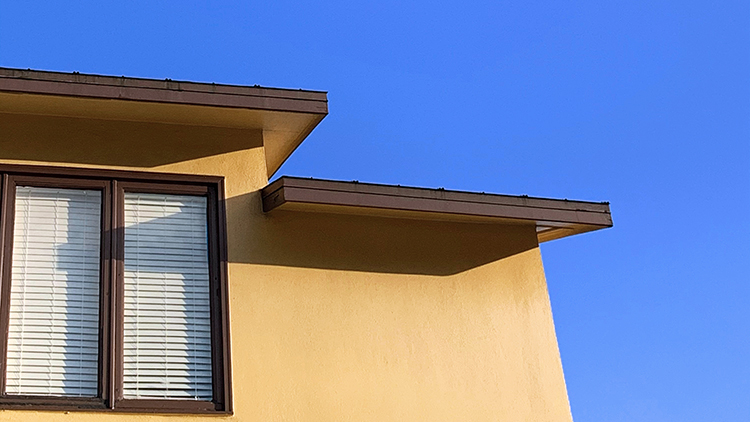How does an easement affect you and your property?
Encumbrances on your property may prevent you from using your land the way you want.
Find out more about landlords
Excellent


by Ronna L. DeLoe, Esq.
Ronna L. DeLoe is a freelance writer and a published author who has written hundreds of legal articles. She does...
Contents
Updated on: April 4, 2023 · 3min read
- What is an easement?
- Determining whether there's an easement on property
- The consequences of having an easement on your property
- How to remove an easement from your property
Whether an easement affects you and your property depends on what type of easement is on the land, how long it lasts, and whether it prevents you from doing what you want with your property.
It's important to know about property easements before you buy a house because you may find that you're stuck with an easement you don't want.

What is an easement?
A property easement grants someone else the limited right to use your land for a specific purpose. For example, a common easement is one that a utility company has for placing cables, pipes, or other equipment under or over the property to allow property owners to use their utilities.
Another common easement is if you and your neighbor share a driveway. In some cases, one of you—not both—will own the driveway, but the other will have the right to the easement and use of the driveway to access their house.
Determining whether there's an easement on property
Before buying property, it's important to hire a real estate attorney to help you check if there's an easement on the property or do it yourself.
To check for an easement on the property, you can take the following steps:
- Contact the utility companies to see if they have any easements on your property.
- Check with the county clerk or county land records office to find out whether the prior deed shows an easement.
- Obtain a survey of the property to see if there are any easements and where they're located.
- Get a title company to do a title search of the property, which will uncover any easements and other burdens on the property.
- Make sure to get a warranty deed from the owner, as it must show any easements on the property.
If there's an easement on the property, it's usually listed on your deed. You'll want to check if you're the easement user, known as the dominant property, or if you're the property owner who must allow your neighbor to use your property, known as the servient property.
The servient property owner cannot block the use of the easement.
The consequences of having an easement on your property
Whether you're the dominant or servient property of an easement, having an easement can sometimes negatively affect the value of your property. Not everyone wants to buy property with an easement on it, so the property with the easement may take longer to sell.
If you and your neighbor share a driveway due to an easement, and if you're the servient property, you can't stop your neighbor from using the driveway.
An easement continues even after you sell the property.
However, if you've given your neighbor access to an area of your property for a specific purpose, and it's not in the deed, this type of easement is an "easement in gross." For example, you may decide to allow your neighbor to use your property to access the lake that's only behind your house.
This easement does not transfer to a new buyer, but is between you and the easement holder. This means that if the neighbor moves, you don't have to grant the same easement, or any easement at all, to the new owner.
Utility easements are often a problem because if you want to build something such as an in-ground swimming pool on your own land, you might be unable to do so if there are pipes and cables in the way. Likewise, if the utility company has an easement to erect poles or power lines, your property value could take a nosedive. s.
How to remove an easement from your property
It's possible, in some cases, to remove an easement from your property. Some of the ways to remove an easement include the following:
- Bringing a lawsuit to contest the easement.
- The easement has expired.
- The easement is no longer usable through no fault of the servient property owner.
- The easement holder signs a release to the servient property holder, removing the easement.
- The servient property owner purchases the dominant property, thereby removing the easement.
- The dominant easement holder gives up the easement by transferring the easement in a deed to the servient owner.
Real estate law and easements are tricky, so hiring a real estate attorney is a good idea when trying to discover what hidden issues come with the property. If you find that the property you want comes with an easement, decide if it's the type of easement you can live with or whether you should walk away.
You may also like
 Starting a Business
Starting a BusinessWhat does 'inc.' mean in a company name?
'Inc.' in a company name means the business is incorporated, but what does that entail, exactly? Here's everything you need to know about incorporating your business.
October 9, 2023 · 10min read
 Trademarks
TrademarksWhy do I need to conduct a trademark search?
By knowing what other trademarks are out there, you will understand if there is room for the mark that you want to protect. It is better to find out early, so you can find a mark that will be easier to protect.
October 4, 2023 · 4min read
 Last Wills
Last WillsHow to write a will: A comprehensive guide to will writing
Writing a will is one of the most important things you can do for yourself and for your loved ones, and it can be done in just minutes. Are you ready to get started?
February 9, 2024 · 11min read